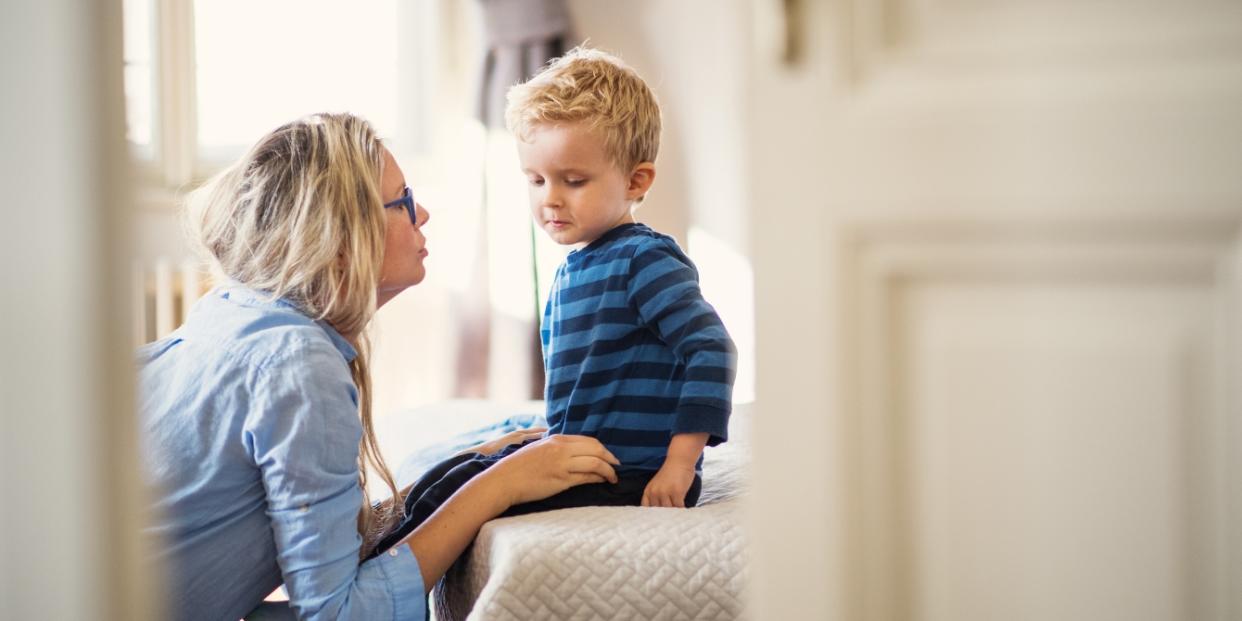Having trouble getting your kid to listen? Try using positive consequences

How many times have you threatened your kid when they weren’t listening to you? Maybe it was bedtime and you said “we’re not reading any books if you don’t brush your teeth!” or it was time to leave the park and you shouted “if you keep running away from me we’re never coming back to the park!”
If you’re thinking, yep, that sounds like me, don’t fret: we’ve all been there. Parenting is hard enough even when our kids do listen, and our patience can wear thin (especially by the end of the day). But there’s a way to get the same point across without using a negative connotation: the reframe of flipping a threat into a positive consequence.
Positive parenting Instagrammer Ralphie (@simplyonpurpose) shared this concept in a viral reel all about healthy parent habits to pick up in 2024.
“It’s very natural for parents to use threats of taking things away to motivate,” she admitted in the reel before explaining why using positive consequences benefits your child. “Using positive consequences adds to a child’s life and creates positive association with the behavior and parent.”
So what does that look like in practice? Ralphie used the example of flipping “If you don’t keep your hands to yourself then we’re leaving!” to “If you can keep your hands to yourself then we can stay and play.”
These two phrases mean the same thing, but when you frame it as a positive consequence, your kid hears what they can do instead of what they can’t do. By encouraging good behavior instead of condemning bad behavior, your kid will feel safe and connected to you as a parent and will be more likely to listen.
Of course, it’s all in theory that your kid will listen if you flip the script like this. In the scenario Ralphie used, the consequence of not being able to keep your hands to yourself is leaving. And it’s OK if that’s what ends up happening!
A lot of times, people mistake gentle parenting for permissive parenting, but that’s not the case. You can still set clear boundaries with your child and be a sturdy leader while showing compassion and empathy. It doesn’t have to be one or the other. In this case, you could tell your child “I know you really want to stay and play. I’m not going to let you hit. We’re going to go home now and it’s okay to feel upset by that. I’m here for you.”
